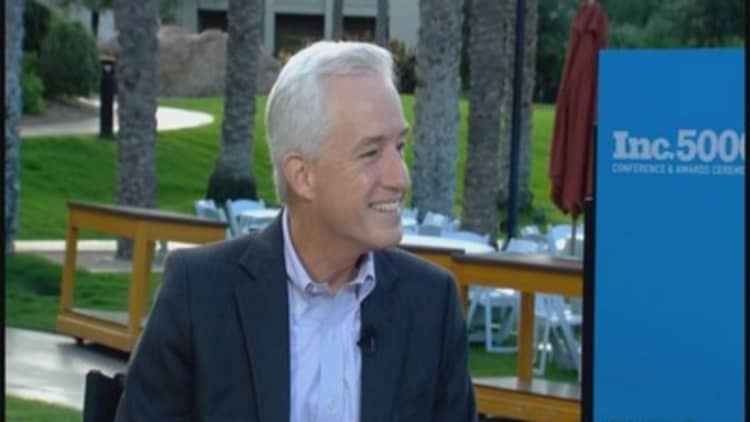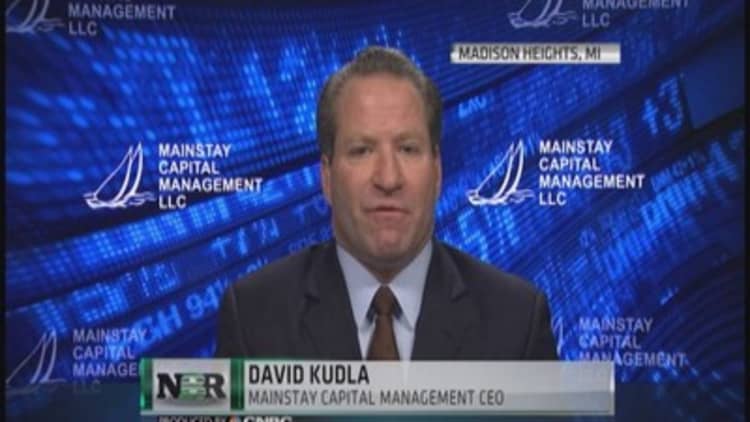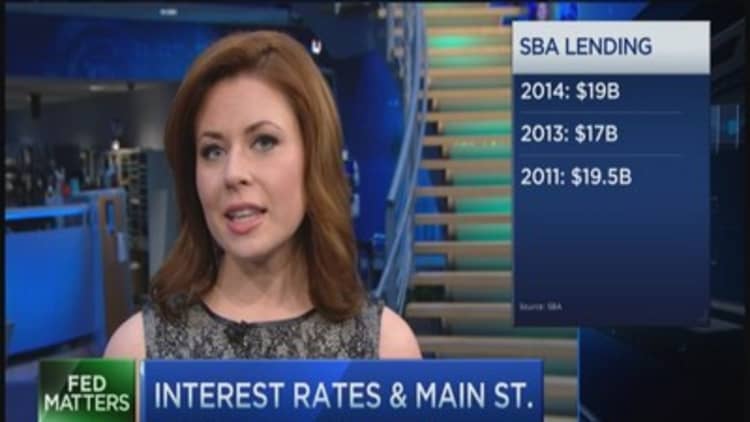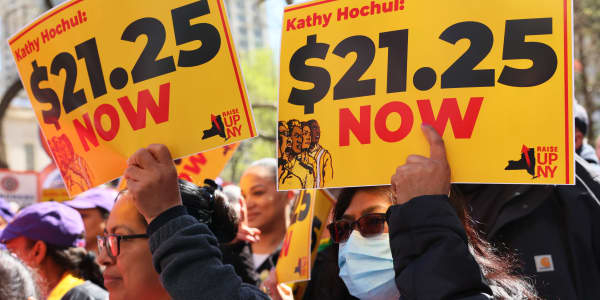IPOs are the gold standard for taking a company public, with all the glory associated with a stock bought and sold on a major exchange. But if all a company wants to do is sell shares in return for equity—and doesn't aspire to be Jack Ma of Alibaba ringing the opening bell on Wall Street—a direct public offering, or DPO, may be a viable equity fundraising option.
Oakland, California-based Cutting Edge Capital has built its business around helping companies launch DPOs and sees it as a growth market. "There has been a dramatic rise in interest from companies that now realize that doing a DPO is not so complicated or expensive," said John Katovich, president of Cutting Edge.
"We're seeing more entrepreneurs who come to us to become DPOs being motivated to be important players in their communities, and achieving that in a healthier, more meaningful way that doesn't involve being listed on a stock exchange," Katovich said. "Speculation, in combination with a casino mind-set and algorithms, has overtaken the notion of investment."
As the Cutting Edge Capital business model shows, the "direct" in the DPO acronym doesn't mean the financial middlemen have been eliminated.
Andre Voskuil is flooded with requests for financing. The founder and CEO of British Columbia-based DutchOracle, which invests on behalf of high-net-worth clients, reviews about 400 prospective investment deals a year. But what's significant about nearly all the companies competing for his investment is that they're all on a trajectory to launch direct public offerings.
Read MoreThe best places in the world to launch a start-up
"Almost 100 percent of entrepreneurs grossly underestimate how tough it is to get financing from third-party investors, even when they're selling shares," said Voskuil, adding, "Where do you find investors willing to put $10,000 or $25,000 of capital into your company without the help of a financial professional's access to deal flow?"
Voskuil said any company pursuing a DPO on its own that reaches even one-third of its target amount is doing well.
This year, Cutting Edge Capital has worked with more than 40 companies to launch DPOs, and it expects to double that number in 2015. It doesn't come cheap, though: Cutting Edge Capital charges $14,000 for its DPO boot camp.
If the JOBS Act guts previous crowdfunding rules so much that there's decreased regulation, it makes attaining DPO status easier for legitimate companies, but it also makes it easy for fraudulent promoters to sell false products.Howard BerkenblitPartner at Sullivan & Worcester
Going the DPO route doesn't imply a regulatory free pass—in fact, regulatory scrutiny is on the rise, and for good reason: concerns about fraud among smaller companies raising capital in public markets.
Earlier this year, the SEC suspended trading in 255 dormant shell companies in the OTC market, taking enforcement action against companies that it accused of having no intention of executing their business plans.
"Some companies now regard DPOs not as the end point but rather as a means to an end," said Carl Sherer, a securities law specialist at Rimon Law. "All they're trying to do is set up a shell company which can then be sold to another company in a transaction called a reverse merger."
In 2007, Sherer was working on a DPO prospectus, filed it with the SEC and got a response 10 days later asking him when the company wanted to go effective. "Today it takes at least four or five months to get approval from the SEC, which is now checking out $100,000 offerings the same way it checks those worth hundreds of millions," he said.
Even if it uses one of several legal means to avoid registering with the SEC, if a company decides on the DPO route and wants to trade stock publicly, it must get approval from the Financial Industry Regulatory Authority (FINRA). "Approval from FINRA allows a company's stock price to have more liquidity, because the price of a stock is quoted for the public to see," Sherer said. "Unless you work in this industry, you probably have no idea how much of a hassle getting an offer through the SEC and FINRA has become."
Inside JOBS
The DPO market could get a boost from the Jumpstart Our Business Startups Act, better known as the JOBS Act.
"DPOs will likely become more popular because of the increased accessibility to potential investors," said Jeffrey Sohl, director of the Center for Venture Research at the University of New Hampshire.
Portions of the JOBS Act still being reviewed by federal regulators, including the SEC, have implications for DPOs, including rules addressing equity crowdfunding for non-accredited investors—an activity associated with DPOs—as well as SEC registration requirements based on deal size.
Currently, companies that wish to launch a DPO can bypass comprehensive SEC registration if the offering is less than $5 million, per the SEC's little-used regulation for private companies seeking to raise capital, known as Regulation A+. Title IV of the JOBS Act covering Regulation A+ increases the amount of the exemption to $50 million. The SEC has gone further in proposed rules, recommending that Regulation A+ not require state "blue sky" reviews for offerings over $5 million intended for qualified purchases.
Read More5 steps to take before starting a new business
"What the SEC is grappling with, and this issue has been the challenge of crowdfunding and DPOs all along, is how to balance protection of investors with a company's objective to raise capital more easily," said Howard Berkenblit, a partner at Sullivan & Worcester who heads up the law firm's capital markets team. "If the JOBS Act guts previous crowdfunding rules so much that there's decreased regulation, it makes attaining DPO status easier for legitimate companies, but it also makes it easy for fraudulent promoters to sell false products," Berkenblit said.



Even if provisions of the JOBS Act make it easier to bring DPOs to market, the key motivator won't change: an entrepreneur's need for financing. That need can also be the cause of problems in the DPO market.
"Many companies are so deeply in need of funding, they often spend investors' DPO-target money instead of putting it in trust until they reach their funding goal," DutchOracle's Voskuil said. "The real need is to move DPOs towards an IPO standard of professionalism."
"DPOs are often viewed as a last resort for companies that need higher investment amounts than crowdfunding typically provides, aren't big enough to become potential IPO candidates, and don't have a network of mostly accredited investors," said Carol Roth, an entrepreneur and former investment banker.
Read MoreThe Wild West of alternative lending for small business
Limited regulatory oversight and requirements for companies to show sales on existing product lines can lead to confidence men pulling the wool over the eyes of investors.
Roth, author of "The Entrepreneur Equation: Evaluating the Realities, Risks and Rewards of Having Your Own Business," foresees more DPO negative headlines and the potential for ongoing regulatory revisions related to the equity crowdfunding provisions in the JOBS Act. "The biggest issue will emerge when some DPOs inevitably do not succeed and investors start losing most of their money," Roth said.
DPOs could "become a dog-and-pony show, where the company best able to talk its way through a deal may end up getting the money. It could get out of hand easily," said Pankaj Patel, associate professor of management at The Entrepreneurship Center at Miller College of Business in Muncie, Indiana.
But DPOs are a legitimate funding route for companies. "A DPO confers both market and grass roots legitimacy, substantially increasing a company's street and product credibility," Patel said. "Many companies tend to proceed from DPO and then get even more investors."







